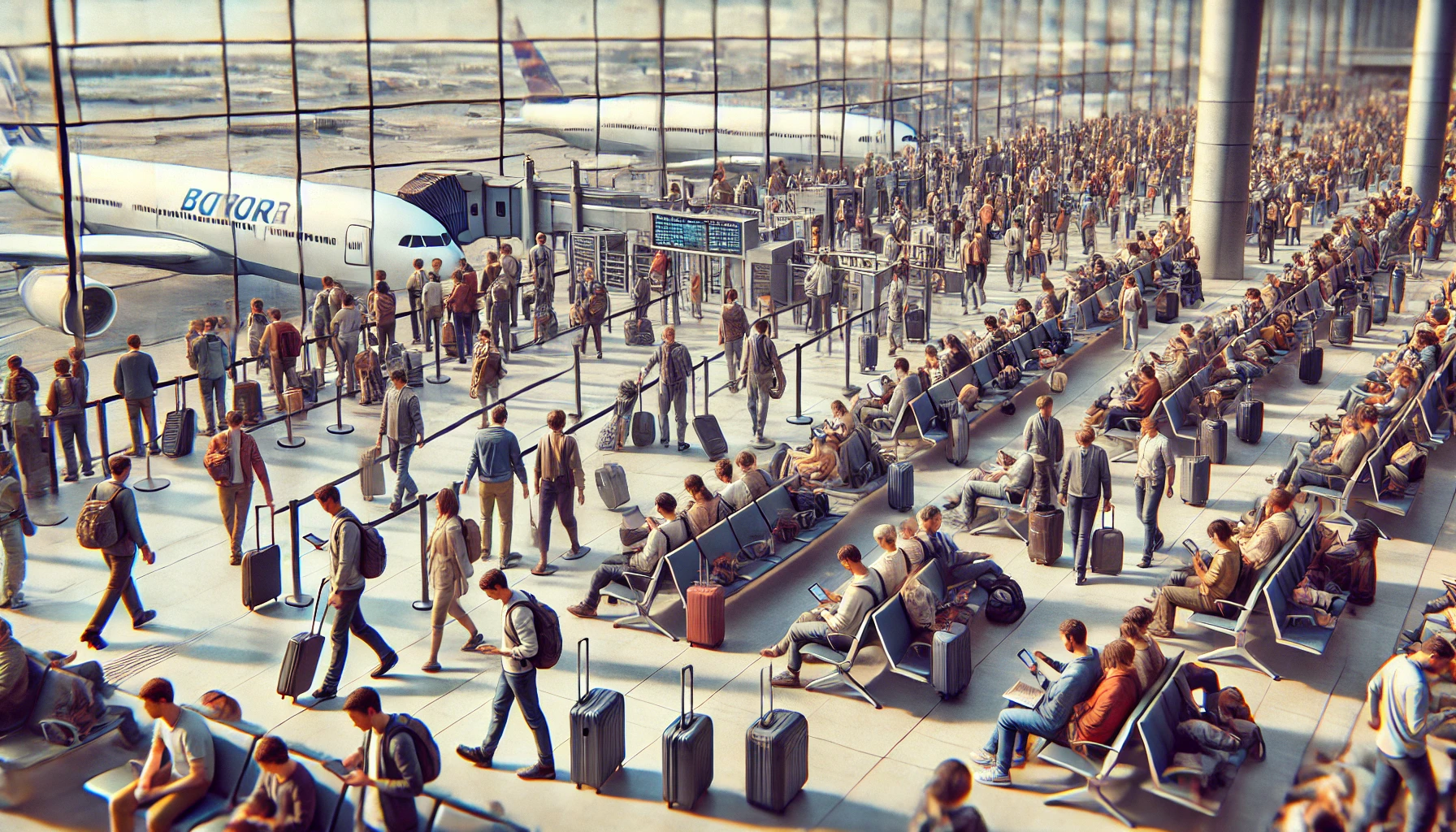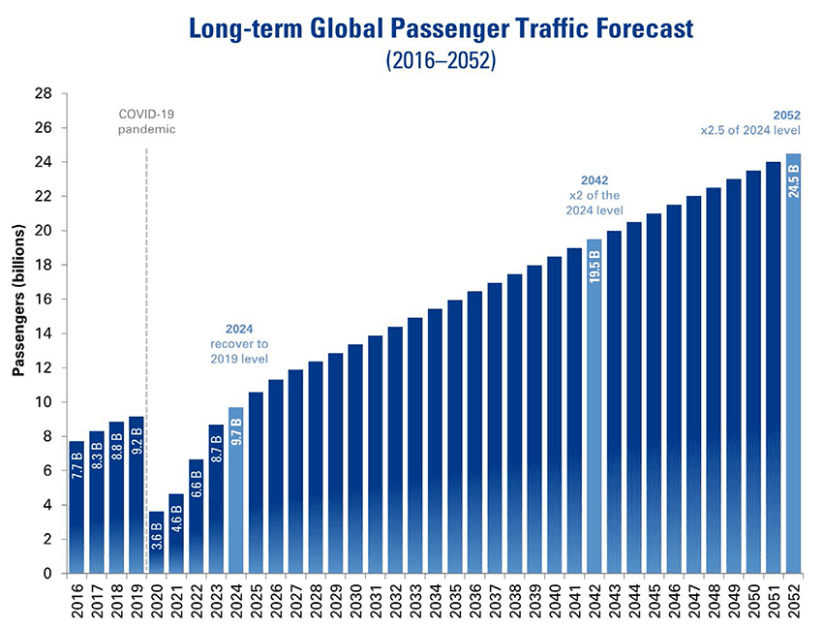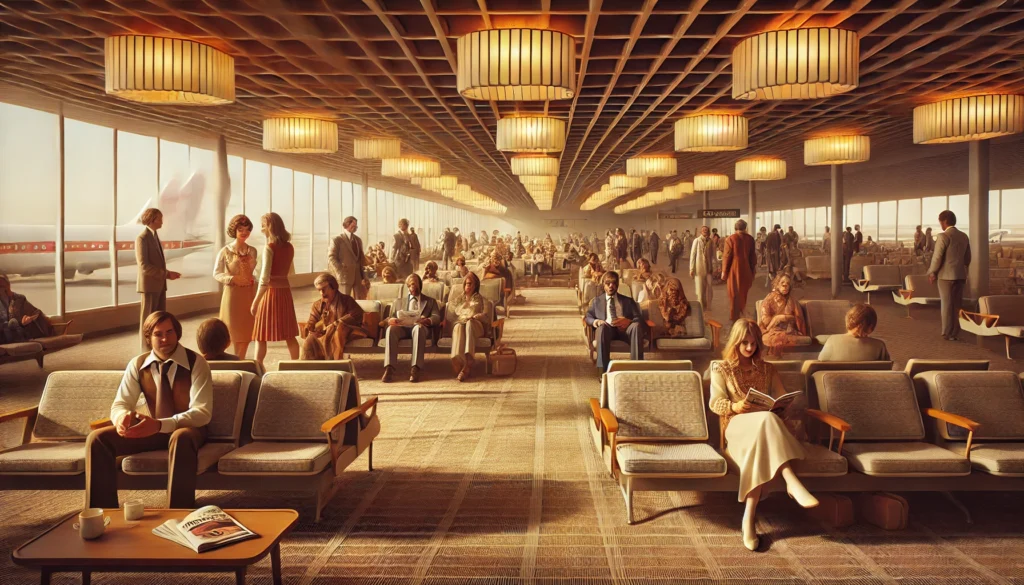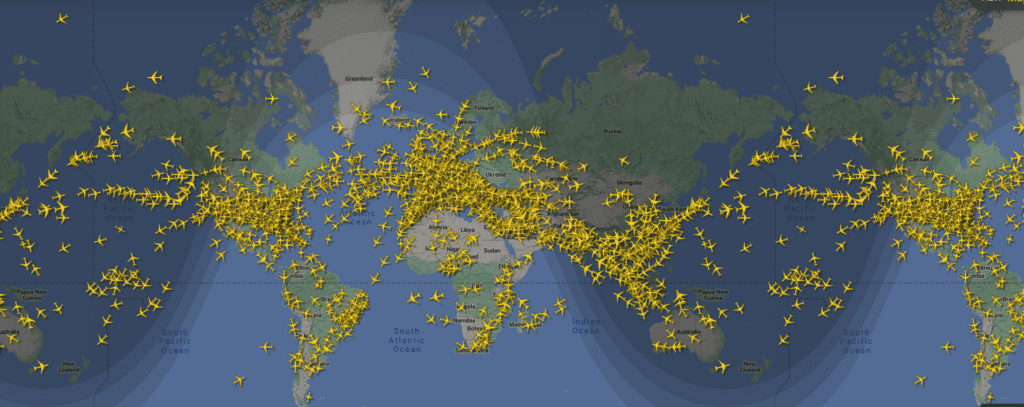
Same numbers, just rearranged! But important!
Instead of the usual 2025 forecast, we are looking toward 2052, same numbers but in a different order! Looking at the travel past and asking the question: Is this trend good for humanity, the planet, destinations or your business. Also how will this affect accommodation supply and opportunities and your future and what actions are needed to maintain your business momentum.

1970’s to 2000’s
The Airbnb early mantra of “live like local” was a 1970’s opportunity not a 2020’s! For those who were born post 1980 (Gen X and Millenials) and probably didn’t travel too much until the year 2000+, these are some of the changes we (and the author) have witnessed! Todays travel is a lot less fun and interesting and thats based on literally hundreds of flights around the globe! Just remember, no mobile phones, no Internet, no social media, calm and collected airport lounges, no pre- boarding queues, plus we had metal knives and forks. Was it better? In many ways absolutely! The genie is out of the bottle however!

- Airports and Crowds
1970s: Airports were less crowded, and the overall volume of air travelers was significantly lower. Air travel was considered a luxury, and terminals were relatively quiet, relaxed spaces.
2020s: Airports are bustling hubs, often overcapacity due to the exponential growth of global travel. Long security lines, delayed flights, and crowded terminals are common stressors. - Security and Trust
1970s: Security protocols were minimal. Travelers could arrive shortly before departure, and family and friends could accompany them to the gate. Trust in fellow passengers and the travel system was generally high. Pilots let you regularly come into cockpits and no locked, sealed doors!
2020s: The post-9/11 crisis ushered in stringent security measures: removing shoes, liquid restrictions, and body scanners contributing to longer wait times and increased stress. No one is to be trusted. - Booking and Flexibility
1970s: Travel was arranged through travel agents or directly with airlines. Tickets were paper-based, and changes required significant effort, often involving long phone calls or in-person visits but there were always people on the end of a phone and hospitality ruled!
2020s: Online booking systems and mobile apps offer convenience but have created complexity. Travelers face hidden fees, restrictions on flexibility, and confusing pricing algorithms, leading to frustration and mistrust in the booking process. Its impersonal! - Costs and Transparency
1970s: Airfare was expensive but included more amenities: meals, drinks, and checked baggage. Pricing was straightforward, reflecting the value of the service provided and we have metal kives and forks and smiling courteous air crew!
2020s: While airfare can be cheaper in real terms due to competition, costs are often disguised through add-ons and fees. This has led to dissatisfaction and reduced trust in airlines. - Comfort and Service
1970s: Seats were spacious, and service was personal. Flying was considered an experience and people even dressed up for the trip. OK people smoked and that was not good but no-one got crazy!
2020s: Aircraft are packed to maximize profitability, leading to cramped seating and reduced legroom. Extras are often pay-as-you-go, further diminishing the sense of hospitality. - Documentation and Bureaucracy
1970s: Travel documentation was minimal. Visas were required for certain destinations, but processes were often straightforward. We waved a passport at security and they smiled!
2020s: Passport, visa, and travel requirements have become more complex due to heightened security, health protocols and geopolitical changes. Digital systems like e-visas simplify some aspects but add layers of uncertainty for others. - Health and Safety Concerns
1970s: Health and safety concerns were relatively low. Vaccination requirements existed for specific destinations, but pandemics and global health crises were not top of mind. Terrorism was not on the radar!
2020s: The COVID-19 pandemic has reshaped travel and evolving security regulations have added complexity and stress. Travelers are more aware of health risks, which impacts the sense of freedom that travel once provided. - Connectivity and Privacy
1970s: Travel was disconnected; travelers were unreachable once they left home, creating a sense of adventure and true escape.
2020s: Mobile phones, Wi-Fi, and social media have made travel hyper-connected. Social media has driven an Instagram culture rather than true cultural enjoyment. - Over-tourism and Environmental Concerns
1970s: Tourism was less mass-market, and destinations were less crowded. Environmental concerns related to travel were minimal. No one was really aware in an oil dominated globe.
2020s: Over-tourism has led to congestion in popular destinations, negatively impacting both travelers and local communities. Environmental awareness has grown, but this adds a layer of ethical consideration and guilt for travelers. - Experience and Mindset
1970s: Travel was about discovery, adventure, and immersion. Destinations were less commercialized, and travelers experienced a more authentic connection with places.
2020s: The commercialization of travel, including “Instagram tourism,” has shifted the focus to curated experiences. Authenticity is harder to find, and the pressure to capture the perfect moment can detract from the joy of exploration. The Airbnb early mantra of “live like local” was a 1970’s opportunity not a 2020’s!

How will this affect accommodation providers?
It’s unknown exactly how many hotels and hotel rooms there are in the world. Profesional bodies estimates there are 17.5 million guestrooms in 187,000 hotels worldwide, but nobody knows the actual figures. Working this number forward to 2052 (and with a heap of errors) the planet will need 48m guest rooms and 480,000 hotels. If we are looking at this for short term rentals we estimate that we will need 30m properties! Clearly an opportunity or a potential global disaster? Who knows, but it does offer up four important elements that will drive your businesses, make it more robust and profitable! Reference.
Sustainability:
Quote: “The message from global experts has been clear and should resonate with every industry: To reach the goals set forth in the Paris Agreement, we must reduce global greenhouse gas emissions from the built environment to net-zero by 2050. For the hospitality industry in particular, sustainability is an increasingly important consideration, as the industry has both a substantial impact on, and itself relies on, the environment and the destinations in which it operates. Natural disasters, including extreme weather, earthquakes, floods, and rising global temperatures are already affecting the hospitality sector, raising the cost of operations and reducing the number of tourists visiting certain destinations. Reference.
In 2020, the Sustainable Hospitality Alliance and the International Finance Corporation (IFC) collaborated to highlight the importance of building and operating hotels sustainably. Their report, “The Business Case for Sustainable Hotels,” presents compelling evidence for why green practices should be a priority for the hospitality industry. The analysis reveals that the hospitality sector contributes to 1% of global carbon emissions, with hotels making up approximately 21% of those emissions. Furthermore, 18% of the food purchased by the hospitality and food service industries is wasted annually. In some regions, hotels use up to eight times more water per person than the local population, underscoring the sector’s significant environmental impact.
Aircraft: Around 2.4% of global CO2 emissions come from aviation. Together with other gases and the water vapour trails produced by aircraft, the industry is responsible for around 5% of global warming. If we add in STRs and asssume it matches hotels then 7% of global warming is due to hospitality/travel. This will increase almost three fold in 30 years on this trajectory.
ACTION: Travellers are increasingly aware of these issues and we can expect legislation which means everyone in the industry needs to look ahead and address the issues if only in a small way!
Hospitality vs Tech
Without doubt technology is at the heart of any business and its efficiency and is fundemental to running a successful operation and increasingly so. Without doubt the biggest paradigm shift in the last 10 years has been the snowballing effect of the use of AI by both large and small businesses. AI will change the very fabric of business, save costs and improve data intelligence opportunities and hospitality by its implementation. The latter importantly by freeeing up staff from the humdrum tasks to become more “connected” to guests and work toward those guest experience expectations.
ACTION: This is an opportunity and a necessity to redefine you business!
Data
Data is not just ADRs and occupancy, dynamic pricing tools or unique site visitors. Every business depends on its cash flow, its costs base, its staff engagement, local and national politics, exchange rates, flight routes, legislation, weather and more. Every business will need to become more focussed on both internal and external data and use technology and data tools to assess their business situations, opportunities and challenges.
ACTION: Ensure you stay abreast of all local and national changes, join associations and use tech to assimilate your business intelligence, daily, weekly and monthly. Small market changes, fees and marketing failures can be painful business challenges.
The conference circuit report may help with some of these actions.
Article by Richard Vaughton, Yes.Consulting
